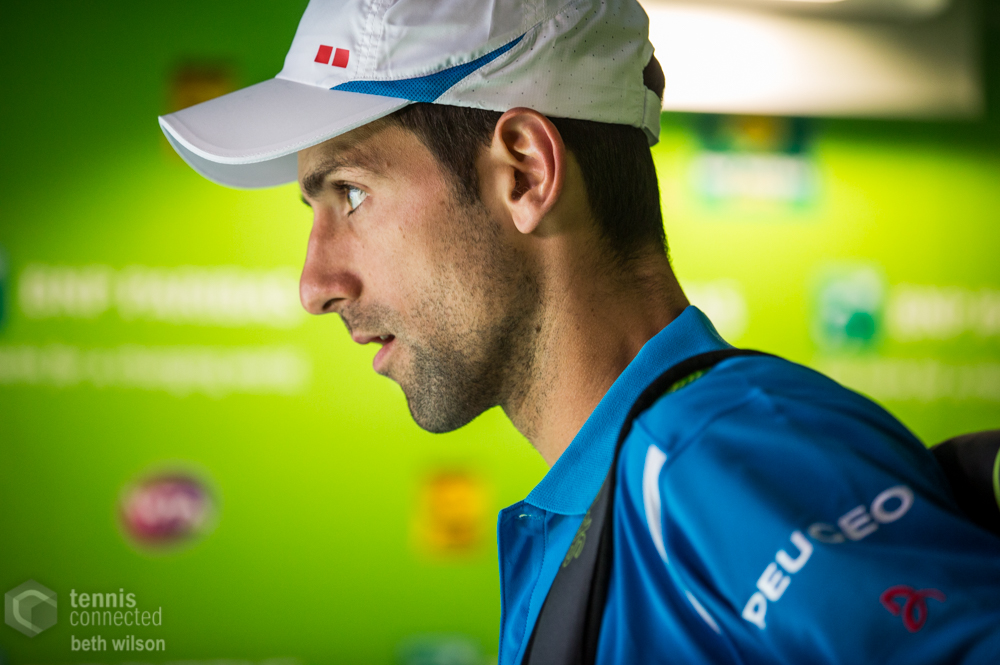Welcome to Tennis Elbow, the column that looks back on the week that was in the world of tennis. This week, Charles Blouin-Gascon reviews the first week of the 2017 Australian Open.
Funnily enough, it’s as if Novak Djokovic’s aura of invincibility disappeared right after he proved he could win everything everywhere—right after he won Roland Garros.
Now, here’s where you include all the disclaimers. He’s still just ranked No. 2 in the world, and that only still came together after No. 1 Andy Murray went on a run for the ages to overtake the Serb right on the final match of the 2016 season. And sure, maybe he’s lost all of six times in 28 matches after winning the French Open last year, but that still means he went 22-6 with one title and two other finals. For many, that more or less would have been a career year.
But of course, Djokovic will be remembered for doing much more than what many have. Which is to say: he isn’t like anyone else—although now maybe he is?
Fast-forward to this past week in the second round of the 2017 Australian Open when the Serb suffered the very worst loss of his career. In trying to become the first one to ever win seven titles down under, Djokovic instead flamed out like he never had. And most perplexing of all, this result was more about the player standing across the net from him, the wild card entry ranked No. 117 in the world and who never ranked higher than No. 33. This result, it was more about him than it was about the best player in the world and 12-time Grand Slam champion.
It was a special moment for the 30-year-old veteran. “It is unreal,” Istomin said after the win. “To beat Novak in five sets, it’s a great win. I’m still feeling a little bit tired. I didn’t expect to be doing what I’m doing now and what I did on the court. I like the way I am playing. I feel just tired. I am not thinking, ‘I just beat the World No. 2’.”
But he sure did, as the World No. 2 lost in Melbourne for the first time after 15 wins in a row. The problems started right from the get go, as Djokovic needed 16 minutes and to save six break points just to win his opening serve game.
He knew it too. “All the credit to Denis for playing amazing,” Djokovic said. “He deserved to win. No doubt, he was a better player in the clutch moments. He stepped it up, played aggressive. Served very well, very precise. There’s not much I could do. Of course, I was not pleased with my performance overall. But I have to congratulate my opponent today.”
We’ll draw your attention here, to the second-last sentence of the Serb’s quote, that he felt there was not much he could do. Istomin stayed true to his hard-hitting style, tallying 63 winners and 17 aces—and provoking many many mistakes from Djokovic. While he didn’t quite reach the silliness of the 100 unforced errors he had a year ago in Melbourne, Djokovic won that 2016 match—surely he would have traded away a few more mistakes if it meant a win.
A year ago, there was nothing (more) Giles Simon could do, as he couldn’t close the deal despite the Serb’s 100 mistakes. This year, it’s Djokovic who’s the one left looking for answers.
Then again, maybe he found it only a few days later when the top-ranked Murray suffered a similarly inexplicable loss.
Follow Charles Blouin-Gascon on Twitter @RealCBG





















